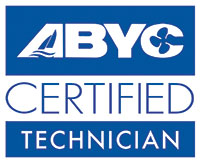Boston Boat Electrical Repair
Found 44 results
BOAT ELECTRICAL REPAIR IN BOSTON
HOW TO FIND THE BEST BOAT ELECTRICAL REPAIR IN BOSTON
South of Boston will have the highest concentration of marine electricians. Areas like Quincy, Hingham, Cohasset, and all the way down to Duxbury are full of marinas and have the highest concentration of recreational boating. Boat electrical repair is very intricate, so you’ll want to make sure that the electrician has the appropriate certifications before hiring them. The American Boat & Yacht Council (ABYC) offers a certification program that is considered the gold standard, so be on the lookout for a certification badge from ABYC. Make sure that the service provider is ABYC certified for electrical, not another discipline of boat repair.
Other than certifications, you’ll also want to do a fair amount of research online. Of course, Mariner Exchange is a great place to begin your search, but note that there are several related search categories to ‘Electrical.’ For example, our website has separate service categories for navigation and communication systems. The best way to see marine electricians near you is to go to the electrical repair search page link just cited and enter in your town.
Besides online research, it also makes sense to consult your local marina or friends that have similar boats to yours. The word of mouth approach is typically sound, but will not give you as many options as searching for electrical repair online.
BOAT ELECTRICAL REPAIR TIPS
Trying to do it yourself? If you are new to boating, then we would advise against this approach. Also, if you have a complex electrical system on your boat, then we would also advise hiring a professional. However, if you’ve done it before and know your AC from your DC, then here are some tips to remember.
-
Wire bundling needs to be well thought out: AC and DC wires should not be in the same bundles and be sure to run your bundles as high as possible to avoid them being submerged in any standing water. Also, DC wires generate lots of heat, so you don’t want to put too many in the same bundle. Always make sure to cover your bus bars and terminal blocks as well. Using conduits is a great way to protect your wiring, but if you’re not using that then be sure to use ties or clamps about every foot to keep everything close together. Make sure that the wire bundles are not rubbing against anything or else the wires will chafe eventually and become exposed.
-
Old DC ground is black, new DC ground is yellow: New ABYC code used yellow for DC ground instead of black. This is because AC systems use black for hot, white for neutral, and green for ground (AC has 3 wires instead of 2). Keep this in mind if you are working with old DC and AC side by side.
-
Tips for battery health: Make sure you have the right size fuses between the battery and the main switch or else you’ll blow fuses constantly. Make sure to have the battery braced securely in whatever compartment it’s in and make sure to avoid any areas where standing water may gather. The battery should be in a marine battery box that is both secure and waterproof. Flooded cell lead-acid batteries are still the standard for boat batteries and should be able to support a robust electrical system for your boat. Make sure that the battery can hold a charge, and if you notice any of the cells are low, then make sure to use distilled water to top it off. Lastly, never ever ever turn the main battery switch while the engine is on.
-
The bilge pump should be connected directly to the battery: This is a rookie mistake that could end up causing a lot of damage to your boat. Make sure that you go around the main switch directly to the battery so that your bilge pump will run periodically while the boat is sitting. Otherwise, water may accumulate in the hull in your boat sits for a long time and could completely fry your electrical system.
-
Navigation and communication system cables should be left alone: These systems tend to come with massive amounts of excess cable. If it’s GPS antenna cables, communication system cables, or any marine network cables - do not try to shorten them yourself and hire a professional to do it.
COST OF BOAT ELECTRICAL REPAIR IN BOSTON
Due to the training required, this type of repair can be pretty expensive. A safe rule of thumb is that you should expect a marine electrician to cost about 20% more than a regular electrician. This is due to the complexity of making electrical systems work in the harsh environment of boating. It is difficult to make it work well when waves are pounding against the hull, the engine is vibrating, and not to mention it all has to be waterproof. In Boston, you can expect marine electrical repair to cost you anywhere from $350 to $1,100 on average depending on the complexity of your current system.


